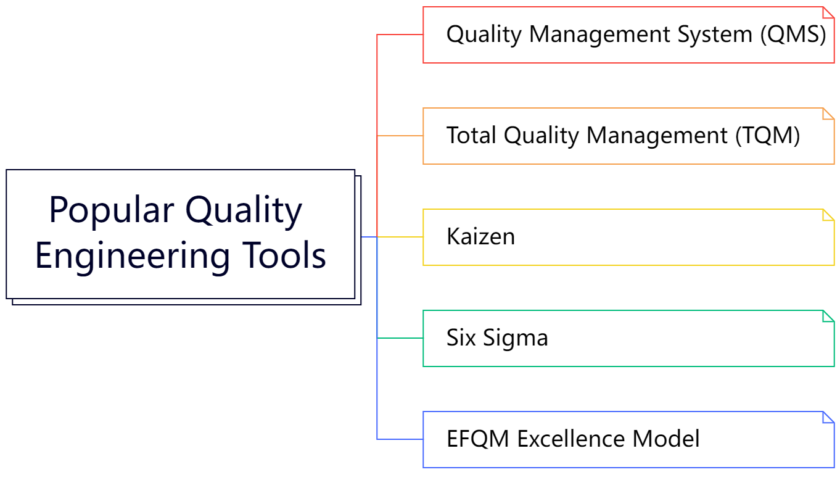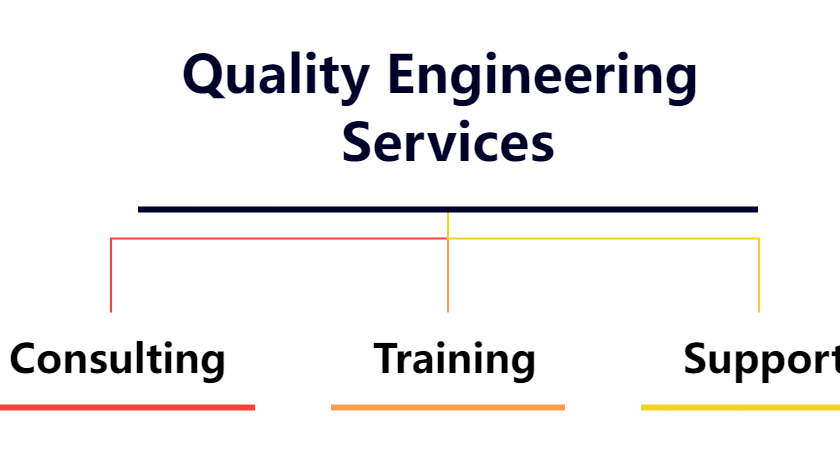
What is Quality Engineering?
The principles and practice of quality engineering involve ensuring and controlling the quality of products and services. IT systems and enterprise architectures have a high-quality standard when they are managed, developed, operated, and maintained.
Quality assurance strategies are developed and implemented in product development and production as well as software development. A quality engineering body of knowledge consists of the following:
- Management and leadership
- The quality system
- Elements of a quality system
- Product and process design
- Classification of quality characteristics
- Design inputs and review
- Design verification
- Reliability and maintainability
- Product and process control
- Continuous improvement
- Quality control tools
- Quality management and planning tools
- Continuous improvement techniques
- Corrective action
- Preventive action
- Statistical process control (SPC)
- Risk management
Quality Engineering in Software
It is important to apply quality engineering principles in any kind of software development so as to manage the risk, the time to resolution, the availability of the system, the downtime, and customer satisfaction. As a result, QE integrates methods and tools from various disciplines, including enterprise architecture, product management, information security management, software, and system engineering.
The most popular philosophies and tools encompassed by QE are listed:
- Quality Management System (QMS)
- Total Quality Management (TQM)
- Kaizen
- Six Sigma
- EFQM Excellence Model (Concept from business excellence developed by the European Foundation for Quality Management)

Quality Engineering Services
There are three main types of Quality Engineering Services:

Consulting
An organization may want to identify areas they need to improve in and develop a strategic plan for achieving them. This can be accomplished with the help of QE consulting. It will include subject-matter consultants from the industry and be aligned with quality initiatives. The following steps will be taken in general:
- Assess the organization’s current state
- Understand improvement areas and how QE can be effective
- Make a strategic plan for introducing QE
- Execute the plan and make templates and documents necessary for it
Training
Education is the key to sustainability. Proper training by highly qualified experts would be the most effective tool here. If you are going to implement the QE methodology, take the time to provide professional and effective training to your teams.
There can be several options:
- Offsite training: Completion of the course in the organization in a work environment.
- Online training: These are independent courses. This can be done remotely (live) or through recorded videos that you can access anytime, anywhere.
Support
A quality management system (QMS) is a long-term strategy. It requires planning and implementation. Quality Engineer (QE) professionals can provide a lot of useful information and resources. They can also help to identify potential problems and resolve them. QE support is essential to ensure that your project meets its objectives. You’ll get the best results if you work with qualified vendors who can offer expert advice and guidance.
What Do You Think?
Did this work for you?
Could I have done something better?
Have I missed something?
Please share your thoughts using the Contact Us form. Also, let me know if there are particular things that you would enjoy reading further.
Cheers!